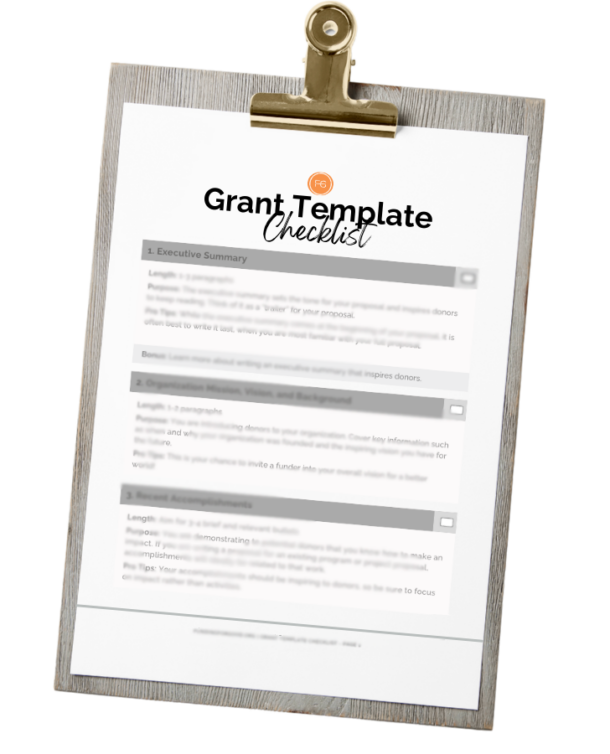Grant writing is not as simple as sitting down and putting words on paper. Oh but if it was! Right?
Successful grant writing begins with successful grant research. Finding the prospects whose priorities are well-matched to your current needs.
How do you do that, and why?
Some folks wait for grant opportunities to fall in their lap, or pop-up in their inbox. Successful grant writers go out and search for the opportunities that match their needs and create a plan for writing, submitting, and managing those grants. Yes, another plan. We talk about donor relation plans, fundraising plans, and now we are talking about grant writing plans.
The first step in securing grants is identifying needs, then doing the research, then reaching out to the foundation, and then writing and submitting proposals.
For today, we are going to focus on the grant research piece of this puzzle.
Effective grant research is a task that takes a while to perfect. There are some simple steps you can take prior to starting the research process that will save you time and frustration, as well as uncover the best prospects for your needs.
Consider incorporating the following items into your grant research process:
1. Create your needs list.
Sit down with program/project staff and generating a needs list for the next year. Some of these items may be organizational in nature too. What are the things that rise to the top as far as need, and then what are the ‘wants’? Create a list and narrow it down to the ones your leadership feel should be goals for your next 12 months.
2. Identify the cost associated with each need
Not only is it important to know your needs, but you must know how much they cost. It is very difficult to successfully identify prospects when you don’t know how much you need them to support. Many foundations list restrictions on award amounts, percentages of project costs they will fund, etc. If you start research without this data, you will not be able to exclude prospects whose parameters are outside your need.
3. When do you need the money in-hand
For each need you identify, you also need to know when the money has to be in-hand so you can look at grant deadlines, when grant proposals are reviewed, and when dollars can be expected. Some foundations will allow you to pay yourself back if you spend money before the check arrives from a foundation. Many will not. This is a question you need to ask prior to submitting a proposal. If the dollars won’t come in time for the project and you can’t pay yourself back for the expense, should you apply for the funding? Probably not.
4. What is the program/project geographic focus
In order to determine which prospects might fund your project, you have to know your service area. It is one city, county, multi-county area, region of a state, a state, national? Once you determine this information, you can even search by foundations who fund organizations in those specific areas.
5. What is the organization’s total operating budget
Do you know the organizational operating budget of the groups for which you are writing grants? When researching foundations, many have limitations based on operating budget. Some may say they only support organizations with operating budgets of $250K or less, or orgs with operating budgets of $1 million or more, etc. If you don’t know the budget, how you can determine if these foundations are a good fit?
6. Who has supported the organization in the past
It helps to know which foundations have supported the organization in the past so there is not a duplication of results. Additionally, with that list, you can research when the last time was that they gave, how much, for what program, and if your group is eligible to apply again or not.
7. Who has declined a proposal in the past
Just as important as knowing who funded your group if knowing who declined funding and why. Maybe a proposal was declined, but your groups was encouraged to apply again the following year. Maybe a proposal was declined because it was a bad match, but now you have a better match. Perhaps a proposal was declined because the organization wasn’t a good fit for the foundation. Knowing all of this information will help determine if you should or should not reach out to a foundation again and follow up on a new proposal. Many times this information gets lost in staff transitions. Especially for groups who are not working with donor software and tracking these types of notes. Too often this kind of historical knowledge leaves with the staff who knows it.
Grant research is a lot of work. If you prepare ahead of time and get the answers you need to be successful, you might be surprised at how much you can find and how quickly.
If you still feel like you need some help with grant research, or you just don’t have the time to do it yourself, check out our Grant Research services. We also have some free videos on our Youtube Channel around Grant Writing and Research.
Happy Researching! – Mandy


